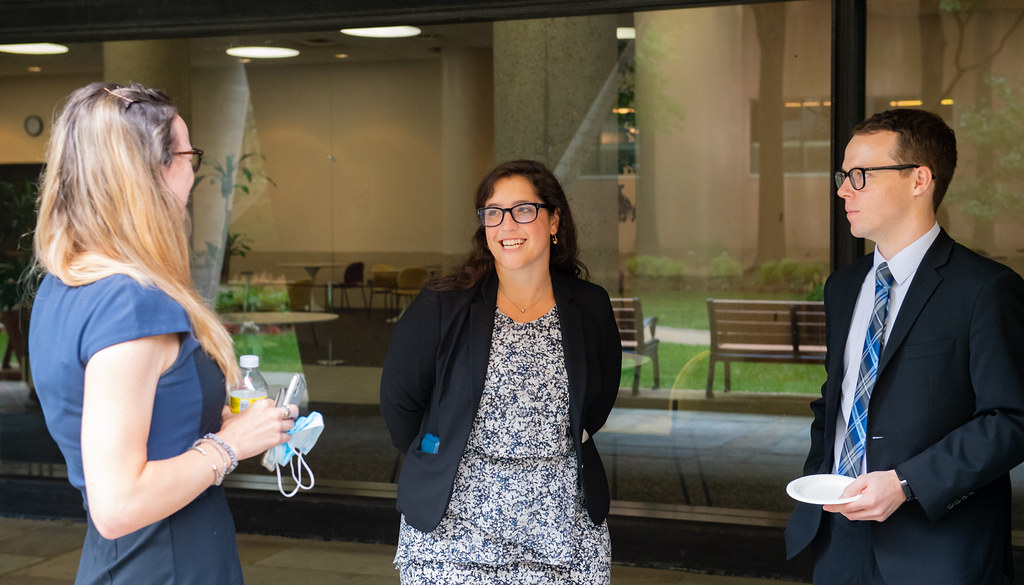In a world that is becoming increasingly digital, it’s no surprise that the field of counselling is also evolving to meet the changing needs of its clients. But what about online therapy for children? Is it a viable option, or does it lack the necessary human touch? In this blog post, we’ll explore the future of counselling and whether online therapy could be the answer for children in need of support. Join us as we delve into this fascinating topic and uncover what lies ahead for the world of child counselling.

The Rise of Online Counselling for Children: What You Need to Know
Online counselling for children has been on the rise in recent years, especially with the COVID-19 pandemic forcing many therapists to shift their practice online. This form of therapy involves using video conferencing, messaging, or phone calls to connect with a therapist from the comfort of your own home.
One of the main benefits of online counselling for children is that it provides greater accessibility to therapy services, particularly for those who live in remote areas or have difficulty traveling. It also allows for more flexibility in scheduling appointments and can be more cost-effective than traditional in-person therapy.
However, there are also limitations to consider. For example, some children may struggle with technology or have difficulty focusing during online sessions. Additionally, online counselling may not be suitable for children who require more intensive or hands-on therapy.
Despite these limitations, online counselling for children is changing the landscape of child therapy and providing new opportunities for children to receive support and guidance. As technology continues to advance, it is likely that this form of therapy will become even more prevalent in the future.

The Benefits and Limitations of Online Counselling for Children
Benefits and Limitations of Online Counselling for Children
Online counselling for children has become increasingly popular in recent years. It offers several benefits, including convenience, accessibility, and affordability. Children can receive therapy from the comfort of their own homes, which can be especially helpful for those who live in remote areas or have mobility issues. Additionally, online counselling can be more affordable than traditional in-person therapy.
However, there are also some limitations to online counselling for children. One of the biggest concerns is the lack of face-to-face interaction, which can make it difficult for therapists to read nonverbal cues and establish a strong therapeutic relationship with their young clients. Additionally, technical issues such as poor internet connection or malfunctioning equipment can disrupt sessions and lead to frustration for both the child and therapist.
Despite these limitations, online counselling has proven to be an effective form of therapy for many children. It is important to carefully consider the benefits and limitations before deciding if it is the right choice for your child’s mental health needs.
How Online Counselling is Changing the Landscape of Child Therapy
Online Counselling is Changing the Landscape of Child Therapy
With the increasing popularity and accessibility of online counselling, more and more children are receiving therapy from the comfort of their own homes. Teletherapy, or online counselling, allows children to connect with licensed therapists via video conferencing platforms like Zoom or Skype. This option offers a host of advantages for both parents and kids alike.
One key advantage is that it eliminates transportation barriers – no need to drive long distances to appointments or rearrange schedules around travel time. Additionally, teletherapy can be a lot less intimidating than in-person sessions, especially for young children who may feel overwhelmed by clinical environments.
However, there are some limitations to this approach as well. For example, poor internet connections can disrupt sessions and prevent effective communication between therapist and client. It’s also important for parents to recognize that confidentiality cannot always be guaranteed during teletherapy sessions if conducted in an insecure location. Despite these drawbacks though, many experts believe online counselling will continue playing an instrumental role in child therapy moving forward.

A Guide to Finding the Right Online Counsellor for Your Child
Finding the right online counsellor for your child can be a daunting task. Researching accredited and licensed professionals who specialize in working with children is essential to ensure that your child receives quality therapy. Look for therapists who have experience using online platforms and have received specialized training in providing virtual counselling services to children.
It’s important to consider the therapist’s approach as well. Some may use cognitive-behavioral therapy, while others might employ play therapy techniques or mindfulness exercises. Take some time to review the potential therapist’s website or online profile, and don’t be afraid to ask questions before booking an appointment.
Additionally, make sure that the therapist has secure video conferencing software and complies with privacy regulations such as HIPAA (Health Insurance Portability and Accountability Act) when handling confidential information. Taking these steps will ensure that you find a qualified professional who can provide effective online counselling services for your child’s needs.

Understanding the Role of Technology in Child Therapy
Role of Technology in Child Therapy
Technology has revolutionized the way we approach child therapy. Online counselling for children has made it possible for children to receive therapy from the comfort of their own homes. Therapists can use various tools such as video conferencing, instant messaging, and virtual whiteboards to communicate with their young clients.
Technology also allows therapists to use interactive games and activities to engage children during sessions. These tools can help children open up and express themselves more freely, leading to more effective therapy.
However, it is important to note that technology should not replace human interaction in child therapy. Therapists must still build a strong rapport with their clients and provide a safe and supportive environment for them to explore their emotions.
Overall, technology has opened up new possibilities for child therapy, but it is important to use it in a responsible and ethical manner.
Overcoming the Challenges of Providing Online Counselling to Children
While online counselling for children has many benefits, it also presents unique challenges. One of the biggest challenges is ensuring that the child feels comfortable and safe in their environment. This can be difficult when the therapist is not physically present with the child. Another challenge is maintaining engagement and focus during the session, as children may become easily distracted by their surroundings or technology.
To overcome these challenges, it is important for therapists to establish a strong rapport with the child and their family before beginning online counselling sessions. Creating a safe and comfortable virtual space can also help to alleviate any anxiety or discomfort that the child may feel. Additionally, using interactive tools such as games or drawing activities can help to keep the child engaged and focused on the session.
It is also important for therapists to be aware of any technical issues that may arise during an online counselling session. Having a backup plan in case of technical difficulties can help to ensure that sessions run smoothly and do not cause additional stress for the child or their family. By being prepared and adaptable, therapists can successfully provide effective online counselling to children.

Exploring the Effectiveness of Online Counselling for Children with Different Needs
Breaking Down Barriers: Online Counselling for Children with Physical Disabilities
Online counselling has been proven to be effective for children with physical disabilities. With the use of video conferencing, children who may have difficulty attending in-person sessions due to mobility issues or other physical limitations can now access therapy from the comfort of their own homes. This not only saves time and effort for both the child and their caregiver, but it also allows for a more relaxed and comfortable environment for the child. Additionally, online counselling can provide access to specialized therapists who may not be available in the child’s local area. Overall, online counselling has the potential to break down barriers and provide much-needed support for children with physical disabilities.
Navigating Neurodiversity: The Benefits of Online Therapy for Children on the Autism Spectrum
Online counselling for children on the autism spectrum has shown to be highly effective in improving their mental health and well-being. The use of technology provides a safe and comfortable environment for children with sensory sensitivities, as they can participate in therapy from the comfort of their own home. Additionally, online therapy allows for more flexibility in scheduling appointments, which can be beneficial for children who struggle with routine or have difficulty transitioning. Research has also shown that online therapy can improve communication skills and social interaction for children on the autism spectrum. Overall, online counselling offers a promising solution for addressing the unique needs of neurodiverse children.
The Power of Play: Using Virtual Platforms to Engage Younger Clients in Therapy Sessions
Virtual platforms have proven to be effective in engaging younger clients in online counselling sessions. Play therapy is a common technique used by counsellors to help children express their emotions and feelings. With the use of virtual platforms, counsellors can incorporate games and interactive activities into their sessions, making it easier for children to open up and engage in therapy. Additionally, virtual platforms can provide a sense of familiarity and comfort for children who may feel intimidated by traditional face-to-face therapy. However, it is important for counsellors to ensure that the virtual environment is safe and secure for their young clients.
From Trauma to Triumph: Supporting Children from Distressed Communities through Remote Counselling
Online counselling for children has proven to be effective in supporting those from distressed communities. With the ability to connect with a counsellor remotely, children who have experienced trauma or are living in unstable environments can receive the support they need. Research has shown that online counselling can be just as effective as in-person therapy for children dealing with anxiety, depression, and other mental health concerns. Additionally, online counselling can provide a safe and confidential space for children who may not feel comfortable seeking help in person. Counsellors who specialize in working with children from distressed communities can offer a unique perspective and approach to therapy that can help these children overcome their challenges and achieve success.

How to Prepare Your Child for an Online Counselling Session
Introducing Online Therapy to Your Child: Tips for a Smooth Transition
Online counselling for children can be an effective way to provide mental health support, but it’s important to ensure your child is comfortable with the process. Start by having an open conversation about what online therapy involves and how it may differ from traditional face-to-face sessions. Show your child the technology they’ll be using, such as video conferencing software or chat platforms, so they feel more familiar with it.
Set up a quiet and private space where your child can participate in their session without distractions. Make sure all necessary equipment is working properly beforehand to minimize technical issues during the session. Encourage your child to ask questions and express any concerns they may have so that they feel fully prepared for their first online counselling session.
Creating a Comfortable and Safe Environment for Online Counselling Sessions
It is important to create a comfortable and safe environment for your child’s online counselling sessions. Choose a quiet and private space where your child can feel at ease and won’t be interrupted. Ensure that the technology being used is reliable and that there is a strong internet connection. Establishing trust with the online counsellor is also crucial, so encourage your child to ask questions and express any concerns they may have. It may also be helpful to set boundaries around the use of technology outside of counselling sessions to maintain a healthy balance. By creating a safe and comfortable environment, your child can fully engage in their online counselling sessions and benefit from the support they receive.
Building Trust with Your Child’s Online Therapist: Communication is Key
When preparing your child for an online counselling session, it’s important to build trust with their therapist. Open communication between you, your child, and the therapist is key to establishing a strong therapeutic relationship. Encourage your child to ask questions and express any concerns they may have about the process. It’s also important to emphasize the confidentiality of the sessions and reassure your child that their privacy will be respected. Additionally, ensure that your child is comfortable with the technology being used for the session and that they have a quiet and private space to participate in the session. By taking these steps, you can help your child feel more at ease and confident in their online counselling experience.
Encouraging Active Participation in Virtual Therapy Sessions: Strategies for Parents
Online counselling for children can be a new and unfamiliar experience for some children. As a parent, you can help your child prepare for their virtual therapy session by encouraging active participation. Start by explaining to your child what to expect during the session and why it is important. Make sure they are comfortable with the technology and have a quiet, private space to participate in the session. During the session, encourage your child to speak openly and honestly with the counsellor. Ask them how they feel after the session and provide positive reinforcement for their efforts. By taking an active role in your child’s online counselling experience, you can help them get the most out of their therapy sessions.

The Ethics and Legal Considerations of Online Counselling for Children
Ethics and Legal Considerations of Online Counselling for Children
As with any form of therapy, ethical considerations should be taken seriously in online counselling for children. Therapists must ensure that they are providing a safe and secure environment for their young clients, especially when it comes to protecting their privacy and confidentiality. They must also adhere to strict professional codes of conduct.
In addition, there are several legal considerations to keep in mind when providing online counselling for children. Depending on the country or state where the therapist is located, there may be specific laws governing the practice of online therapy with minors. These laws can vary widely from place to place and therapists must do their due diligence to ensure compliance.
Therapists who provide online counselling services must also make sure they have appropriate informed consent procedures in place, particularly when working with minors. Parents or guardians may need to provide written permission before treatment begins.
Overall, while online counselling for children has many benefits, it’s important that therapists take these ethical and legal requirements seriously to protect both themselves and their clients.

What Does the Future Hold for Online Counselling in Child Therapy?
Online counselling for children is a rapidly growing field, and its future looks bright. As more families have access to the internet and the technology becomes more advanced, online therapy will become an even more effective way to reach young clients who might struggle with in-person treatment. However, it is also important to remember that online counselling is not a panacea; there are still limitations and challenges that need to be addressed. One key factor in the future of this field will be continued research on its efficacy and adaptability, especially when working with populations experiencing trauma or anxiety. Additionally, we can expect increased emphasis on regulations and protocols for ensuring safe practice across all aspects of digital therapy services – from data privacy to informed consent procedures – as practitioners continue their shift towards online child psychotherapy. Overall though, there is no doubt that virtual counselling has opened up new possibilities in child therapy for both therapists and clients alike.
In conclusion, online counselling for children is a rapidly growing field that offers numerous benefits and opportunities for both therapists and clients. While there are some limitations and challenges to providing therapy through digital means, the advancements in technology and the increasing demand for remote services are changing the landscape of child therapy. As a parent or caregiver, it’s important to do your research and find a qualified online counsellor who can provide the support your child needs. With proper preparation and guidance, online counselling can be an effective tool for helping children overcome challenges and achieve their goals. As we continue to navigate the ever-evolving world of technology and mental health, it’s clear that online counselling will play an increasingly important role in the future of child therapy.
